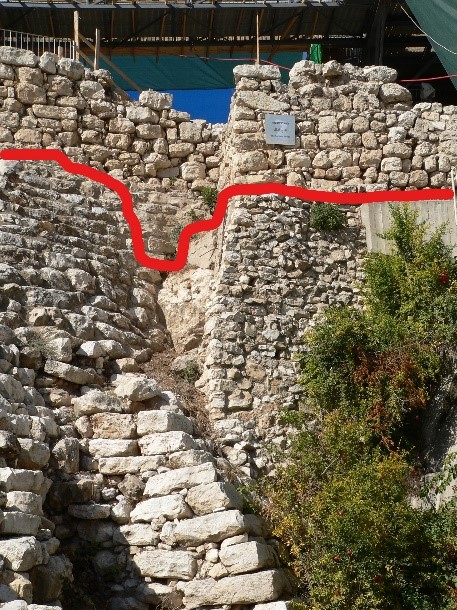Here we have the fourth of the seven psalms of praise that close the book. The translators of the New King James Version have given this otherwise unidentified psalm the title "Praise to God for His Word and Providence", which is a very apt summary. Right from the start, the unknown psalmist tells us that praising the LORD (YHWH, the One who revealed His Name and nature to Moses) is a good, pleasant and beautiful activity, especially when singing his praises (v.1). We should remember that although neither tune nor instruments are recommended here, as a psalm this is indeed a song, not merely a poem, as the Hebrew noun ‘mizmowr’ (psalm)1 indicates.
A celebration of God’s spoken word
What follows are many reasons to praise the LORD and through the psalmist’s tapestry God’s spoken word runs like a golden thread. In verse 4 we are reminded that the LORD calls all the stars by name, an indication of his infinite understanding (v.5). In verse 15, in connection with various aspects of the earth’s weather, we find acknowledgement that these occur by His command and word. Then in verse 19 our attention is drawn to his declaring statutes and judgments to the nation of Israel. Thus, at all scales, from the stellar galaxies, to the planet on which our daily lives depend, to the regulation of its people, God is to be praised for the effectiveness of his Word. Hallelujah!
Delight in praise
In everyday English usage ‘praise’ is seen mainly as a form of approval and encouragement. However, the Hebrew word behind the psalmist’s opening exhortation to praise is ‘tehillah’, from the root ‘halal’, which encapsulates not only praise but also adoration and thanksgiving. The word ‘Hallelujah’ (Praise the Lord) derives from the very same root and has the same depth of meaning. In verse 1 the Hebrew behind ‘pleasant’ also includes the rather stronger term ‘delightful’, implying delight both in the one giving praise and in the one receiving it, and here one is reminded of Psalm 22:3, the Authorised translation of which is better, “But thou art holy, that inhabitest the praises of Israel”. God’s very presence is linked with the praises of his people! Furthermore, the description of praise to the LORD as ‘comely’ (AV) and ‘beautiful’ (NKJV) is more accurately rendered ‘fitting’ in the NIV. The eminent 19th-century scholars Carl Keil and Franz Delitzsch pointed out that such praises are truly fitting in two senses, firstly in relation to God’s worthiness, and secondly, in relation to our gratitude. In fact, ultimately, he alone is worthy of our adoration and thanksgiving!
A psalm of Nehemiah?
The same scholars summarise this psalm as "Hallelujah to the Sustainer of All Things, the Restorer of Jerusalem".2 The second part of this immediately draws our attention to verse 2: “The LORD builds up Jerusalem, He gathers the outcasts of Israel”, and to verses 12-13 “Praise the LORD, O Jerusalem …. For He has strengthened the bars of your gates”. These verses are redolent with gratitude for the return of the exiles from Babylon and the re-establishment of Jerusalem as a defensible city. They are consistent with what we read in Nehemiah’s twelfth chapter, particularly from verse 27 onwards, in contrast with the vulnerable condition described by him in the first verse of chapter 6 (“I had rebuilt the wall and there were no breaks in it, though at that time I had not hung the doors in the gates”). There, in his twelfth chapter, we have his account of the re-dedication of the city wall, which had been rebuilt on the remains of that destroyed by Nebuchadnezzar’s troops in 587/586BC. Moreover, God’s prophetic word through Isaiah, spoken about 250 years previously of Cyrus, the emperor chosen by him to begin the process, had been fulfilled (“He shall build my city and let the exiles go free” (45:13)). Hallelujah!
 Remains of Nehemiah’s wall (above red line), built on the ruins of the wall destroyed by Babylonians (image by David Longworth, author) The dedication was celebrated “with gladness, both with thanksgivings and singing, with cymbals and stringed instruments and harps” (Neh 12:27) and with “two large thanksgiving choirs” (Neh 12:31). “Also, that day they offered great sacrifices and rejoiced, for God had made them rejoice with great joy. The women and the children also rejoiced, so that the joy of Jerusalem was heard afar off” (Neh 12:43). Not only was the city now secure within its walls and gates, but, as verse 30 tells us, the Priests and Levites, the people, the gates and the wall, were all purified – the remnant was restored in its relationship with the LORD. Most likely, then, Psalm 147 was the song sung on that joyous occasion. Not only had God built up Jerusalem, he had gathered the “outcasts of Israel”, and He had healed “the broken hearted” (Ps 147:2-3). Hallelujah! What a day that was!
Remains of Nehemiah’s wall (above red line), built on the ruins of the wall destroyed by Babylonians (image by David Longworth, author) The dedication was celebrated “with gladness, both with thanksgivings and singing, with cymbals and stringed instruments and harps” (Neh 12:27) and with “two large thanksgiving choirs” (Neh 12:31). “Also, that day they offered great sacrifices and rejoiced, for God had made them rejoice with great joy. The women and the children also rejoiced, so that the joy of Jerusalem was heard afar off” (Neh 12:43). Not only was the city now secure within its walls and gates, but, as verse 30 tells us, the Priests and Levites, the people, the gates and the wall, were all purified – the remnant was restored in its relationship with the LORD. Most likely, then, Psalm 147 was the song sung on that joyous occasion. Not only had God built up Jerusalem, he had gathered the “outcasts of Israel”, and He had healed “the broken hearted” (Ps 147:2-3). Hallelujah! What a day that was!
It’s quite possible that the author of this psalm was Nehemiah, but whoever it was drew heavily upon Psalm 33, for there are many parallels. There isn’t space here to make a thorough comparison, but the beauty of praise, the word of the LORD, his work in creation, his relationship with Israel and the importance of trust in him are all present in both. It seems no coincidence that Nehemiah describes the people’s praises as being conducted “according to the command of David, the man of God” (12:24). Do read the two psalms together for yourselves. And, above all, do respond personally to the psalmist’s injunctions. Rejoice in the LORD! Praise the LORD! Sing to him with thanksgiving!
Endnotes
1 Literally, instrumental music; by extension, accompanied song.
2 Keil, K & F Delitzsch (1861) Commentary on the Old Testament: Vol 5: The Book of Psalms




